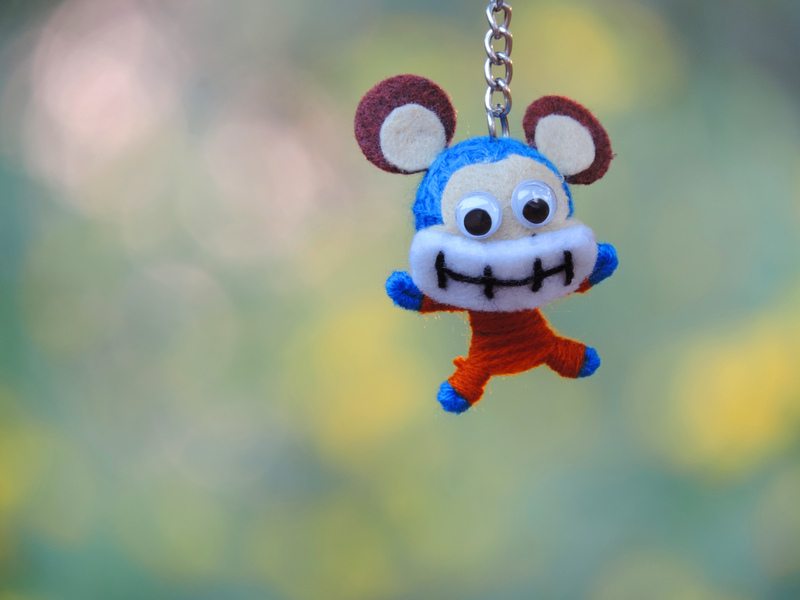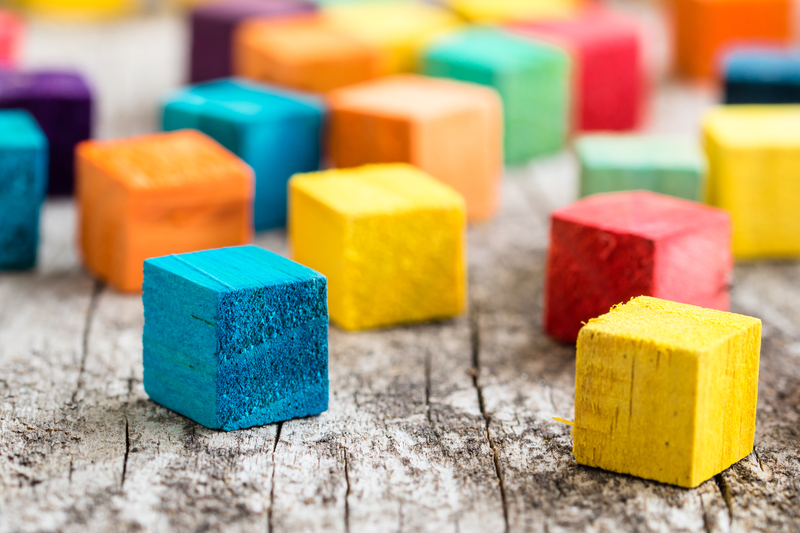How De-Cluttering Aids in Stress Reduction: Transform Your Space & Mind
In our fast-paced and digitally connected world, it's easy to overlook the impact our physical surroundings have on our mental well-being. Many people live and work in environments filled with unnecessary possessions, old papers, and forgotten boxes -- all contributing to unseen chaos. The process of de-cluttering your space has grown in popularity for good reason: it is directly linked to improved mental health and overall happiness. In this article, we'll explore how de-cluttering aids in stress reduction, providing actionable advice and psychological insights so you can experience the transformative power of an organized life.
Understanding the Link Between Clutter and Stress
Before addressing the methods and benefits of de-cluttering, it's important to comprehend why clutter causes stress. Many studies suggest that physical disorder can cause sensory overload, reduce productivity, and even trigger feelings of guilt or embarrassment. Let's take a closer look at these connections.
How Does Clutter Trigger Stress?
- Sensory Overwhelm: Clutter bombards our senses with excessive stimuli, making it difficult to relax or focus.
- Constant Visual Reminders: Every time you see disorganization, it's a subtle reminder that there's still work to be done, contributing to feelings of anxiety.
- Reduced Productivity: A cluttered workspace can lead to wasted time searching for items, disrupting workflow and adding to daily frustration.
- Increased Cortisol Levels: Research shows that people with cluttered homes have higher levels of the stress hormone cortisol, especially women.
Clutter is more than just an inconvenience -- it's a potential barrier to a peaceful, balanced life.

The Psychological Benefits of De-Cluttering
Now that we've identified how clutter contributes to stress, let's delve into the psychological benefits of creating and maintaining an organized environment.
1. Regaining a Sense of Control
When life feels overwhelming, our surroundings often reflect that turmoil. By consciously choosing to clear clutter, you reclaim control -- not just over your physical space, but over your emotional well-being.
2. Boosting Productivity and Creativity
Clean and organized spaces foster mental clarity. Without distractions or visual chaos, your mind is free to focus, innovate, and accomplish tasks efficiently. Studies have shown that an organized desk or home environment can lead to improved problem-solving and creative thinking.
3. Enhancing Mood and Reducing Anxiety
Our brains crave order. When our environments are tidy, our anxiety levels drop and our mood stabilizes. The simple act of cleaning or organizing can be meditative, releasing endorphins and providing a sense of achievement.
4. Improving Sleep Quality
De-cluttered bedrooms support better sleep hygiene. Removing excess items from sleeping areas helps create a calm, restful atmosphere, signaling your brain that it's time to unwind and recharge.
5. Encouraging Mindfulness
The repetitive, hands-on nature of organizing and de-cluttering encourages mindfulness -- focusing on the present moment and intentional decision-making. This can serve as a practical form of meditation, easing symptoms of stress and anxiety.
How De-Cluttering Reduces Daily Stress
Stress reduction through de-cluttering isn't just about removing unwanted items; it's about transforming your relationship with stuff. Here are specific ways that de-cluttering can alleviate daily stress:
- Fewer Decisions to Make: Streamlined spaces reduce decision fatigue. With fewer possessions, you spend less time choosing what to wear, use, or clean.
- Quicker Cleaning: Less clutter means tidying up is faster and less overwhelming, freeing up time for self-care and leisure.
- Improved Focus: Eliminate distractions to boost concentration, whether you're working, studying, or relaxing.
- Lower Maintenance: Maintaining a de-cluttered area is easier, promoting lasting order and tranquility.
Practical Tips for Stress-Free De-Cluttering
Starting the de-cluttering process can feel daunting, but breaking it down into manageable steps can ease anxiety. Here's a roadmap to get you started on your stress-busting journey:
1. Set Realistic Goals
- Focus on one room or area at a time.
- Dedicate specific time blocks -- even 15-30 minutes is effective.
- Celebrate small wins to build momentum.
2. Use the Four-Box Method
- Keep: Items you use regularly or hold significant value.
- Donate: Items in good condition that can benefit others.
- Recycle: Broken or outdated items that can be responsibly disposed of.
- Trash: Anything that cannot be reused or recycled.
3. Declutter Visibly High-Impact Areas First
Focus on spaces you see and use every day, such as entryways, kitchen counters, or work desks. Seeing immediate results can boost motivation.
4. Make De-Cluttering a Regular Habit
- Establish weekly or monthly decluttering sessions.
- Adopt the "one-in, one-out" rule: For every new item brought in, remove one.
5. Seek Support if Needed
If you feel overwhelmed by the process, don't hesitate to enlist the help of friends, family, or even professional organizers. Sometimes a second opinion or a fresh set of hands can make all the difference.
Minimalism and Mindful Living: Taking De-Cluttering Further
For many, de-cluttering is the starting point for a more minimalist and mindful way of living. Minimalism isn't about deprivation; rather, it encourages you to surround yourself with only the things that add real value or joy to your life.
The Minimalist Advantage
- Financial Benefits: Spending less on unnecessary items means saving more for the things that truly matter.
- Emotional Well-being: Release old attachments and make intentional choices, fostering emotional clarity and lightness.
- Environmental Impact: Accumulating fewer possessions helps minimize your ecological footprint.
By intentionally curating your surroundings, you create a sanctuary that supports your goals, values, and mental health.
Common Barriers and How to Overcome Them
Even with the best intentions, overcoming the emotional challenge of de-cluttering can be tough. Here are some common obstacles and strategies to move past them:
Sentimental Attachments
- Take photos of meaningful items before parting with them.
- Keep a small, designated box for irreplaceable keepsakes.
- Remember that memories reside in you, not in objects.
Fear of "Needing it Later"
- Set a timeline: If you haven't used an item in six months to a year, it's safe to let go.
- Practice gratitude -- appreciate what the item has already provided.
Decision Fatigue
- Enlist a friend as an accountability partner.
- Start with easy decisions (expired products, broken items).
- Limit decluttering sessions to avoid burnout.
Integrating Decluttering Into Your Self-Care Routine
Viewing decluttering as self-care can reshape your approach and increase motivation. Consider the following strategies:
- Create a calming playlist to accompany your cleaning sessions.
- Use non-toxic, pleasant-smelling cleaning products to enhance your sensory experience.
- Reward yourself with a relaxing activity after completing a session -- like a bath or a favorite movie.
Real-Life Success Stories: Stress Relief Through Decluttering
Many individuals have found profound relief from stress and anxiety after simplifying their surroundings. Whether through small, daily efforts or large, transformative cleanouts, they report similar outcomes:
- More Time for Loved Ones: With less time spent cleaning and organizing, more time is available for relationships and hobbies.
- Greater Sense of Accomplishment: Each decluttering milestone brings renewed energy and self-esteem.
- Improved Focus and Peace of Mind: Clear spaces reflect and inspire a clear mind.

Start Your Stress-Reduction Journey Today
If stress has become a constant presence in your life, examine your environment. Decluttering for stress relief is a tangible and rewarding step toward greater well-being. Begin with a single drawer, a corner of the living room, or your workspace. The relief, satisfaction, and renewed sense of calm may surprise you -- and inspire lasting changes far beyond your home.
Remember: Decluttering is not a one-time event, but a lifelong journey toward a healthier, happier mind and body. Embrace the process, and let your environment become your ally in living well.
Conclusion: Cultivate Spaces That Nurture the Soul
By reducing clutter to reduce stress, you take proactive steps to foster resilience, creativity, and relaxation in your daily life. Each decision to let go is a decision to embrace peace and intentionality. Start small, stay consistent, and watch as your environment transforms into a sanctuary -- one that supports your best self, both now and in the future.